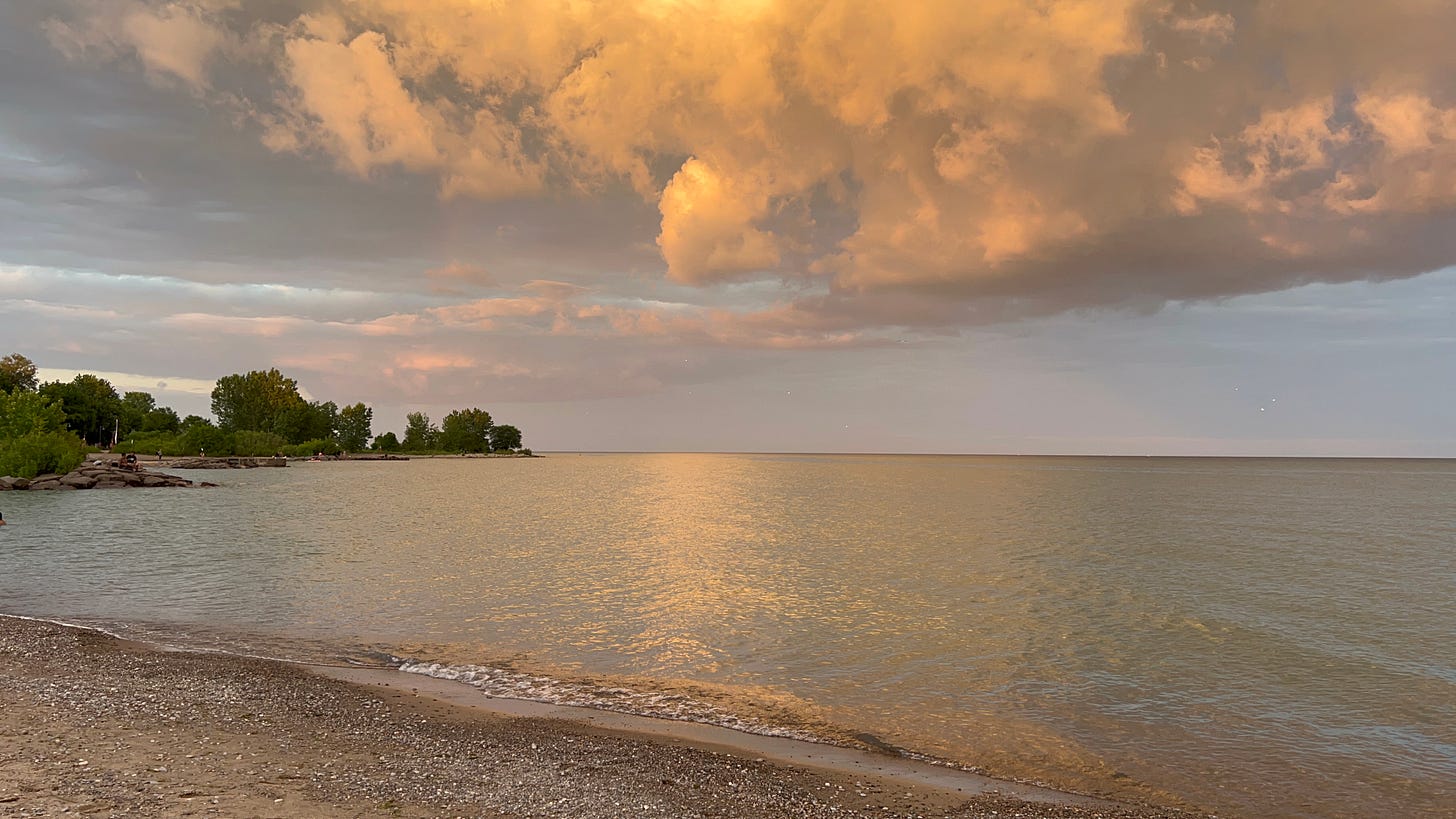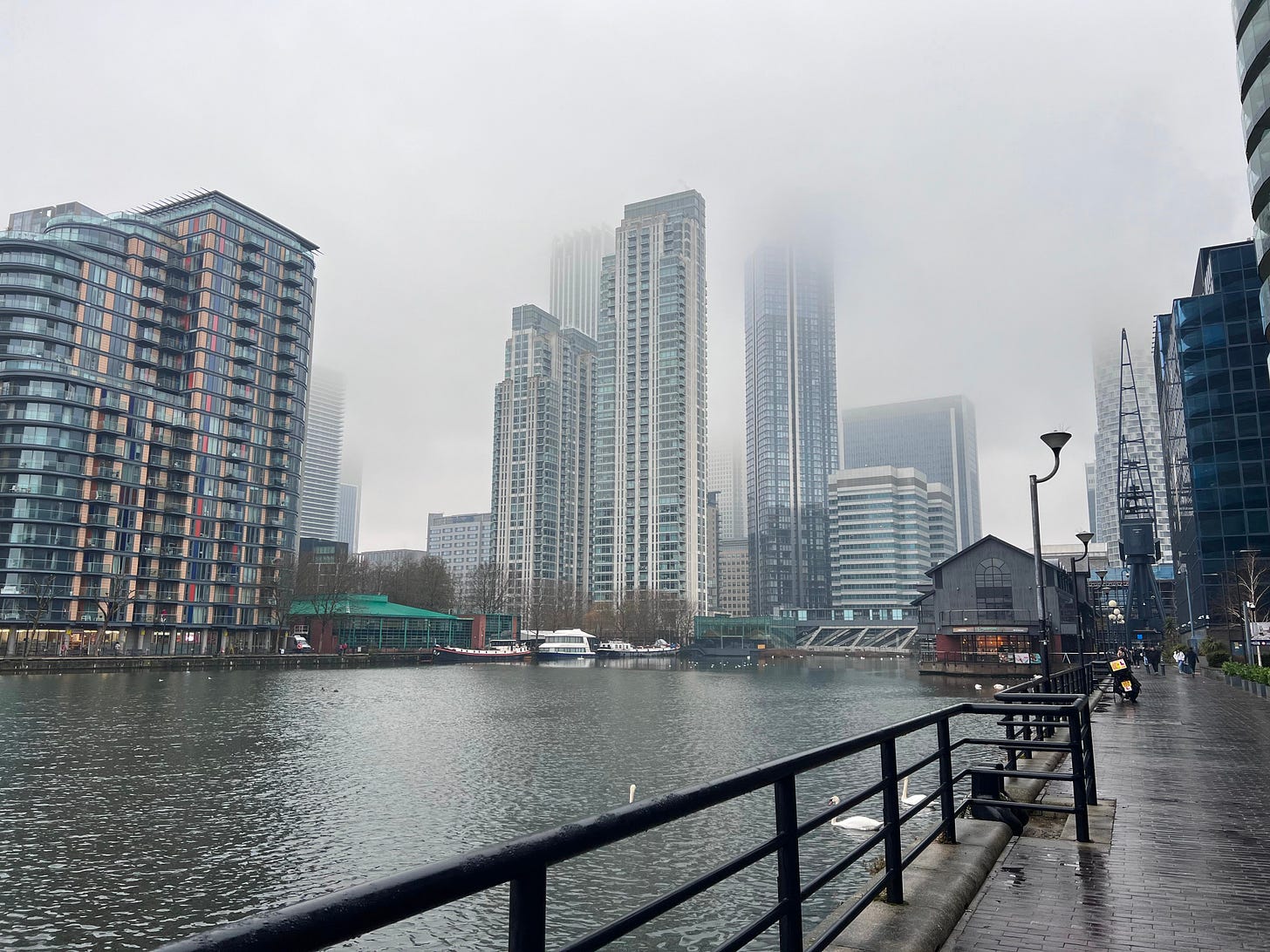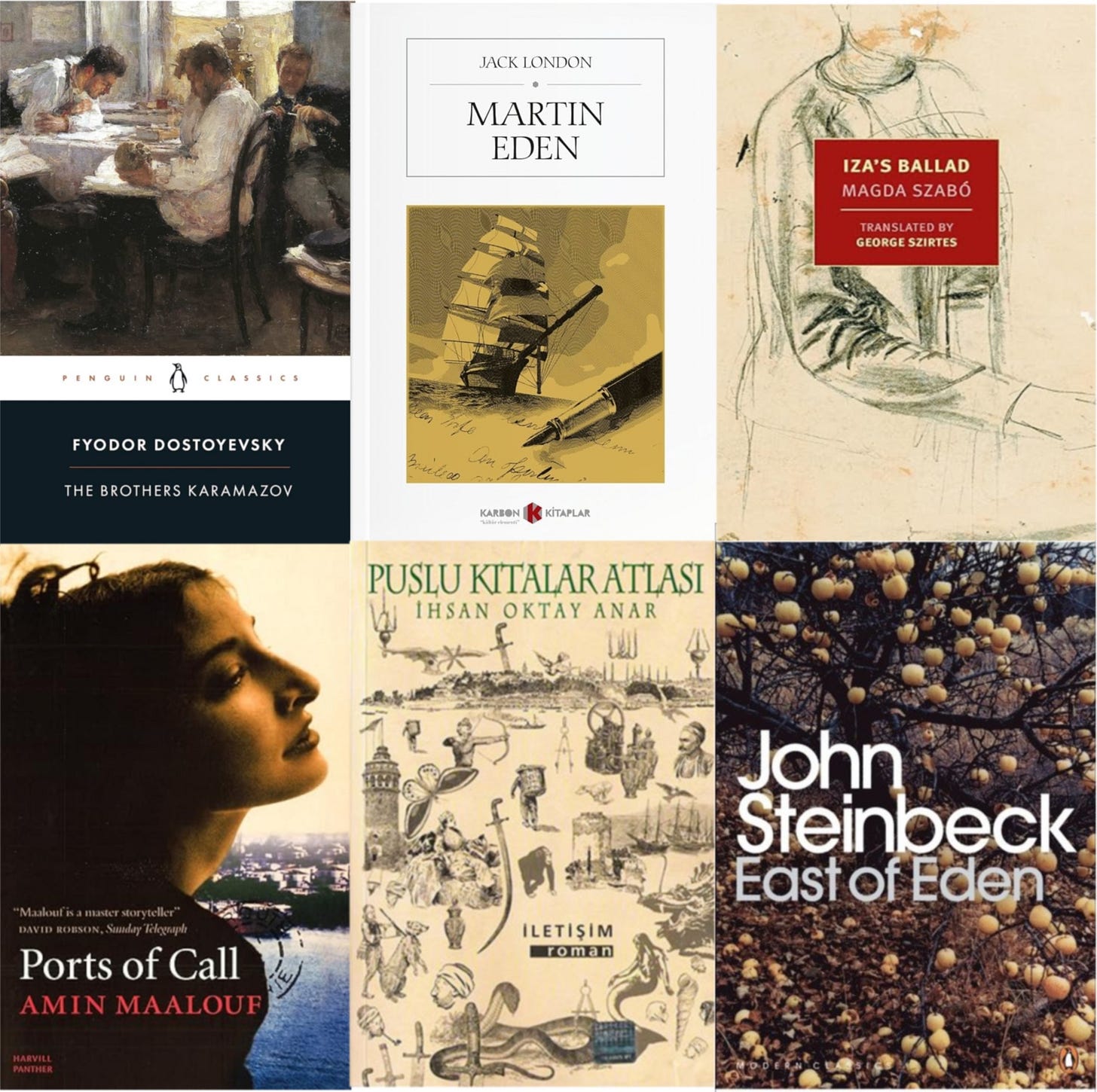How to Find Your Thing(s) in Life
Finding your true passion(s) and setting your long-term and short-term goals without feeling overwhelmed.

A Little Bit About Me and What I Plan to Write About
It’s been a while since I started thinking about writing a blog, sharing my thoughts, and reflecting on what I’ve been through. My name is Nur, and I’m an analytical creative. I have several interests, and finding time for each has always been a struggle for me. It’s funny—when you don’t choose any of them, they stay in the realm of “would have been perfect.” They remain vague ideas of could have, would have, should have. But in reality, what you’re actually doing is not choosing at all—just letting the river of life flow over you instead of steering it with your own ship, your own vessel. Time passes you by; it spends you, not the other way around.
That’s exactly how I feel when I go a day without a creative output. It doesn’t necessarily mean I need to produce something tangible every day, but for too long, I’ve been stuck in the phase of preparing without actually putting things out there. Procrastinating, postponing, making endless bullet points about my imperfections—"I need to read that book too," "I should take that online course first," and countless other "need to"s that kept me from starting.
This year, I decided my main theme would be putting myself out there. After working on several things, enjoying different creative processes, and learning a lot, I’ve realized I will never be the perfect version of myself. But that doesn’t mean it’s not worth sharing the different versions of me. The problem was, I didn’t know how or where to start. I knew it had to be writing, but I wasn’t sure about the medium. So, in a very logical move, I asked ChatGPT. I literally typed, “I want to write blog posts about books, cultural stuff, etc. What platforms could I use, and what are the SWOT analyses of each?”
(SWOT stands for Strength, Weakness, Opportunity, and Threat. It is used to evaluate a business, project, or idea.)
After checking the SWOT analysis of different platforms, I discovered Substack (though, funnily enough, I realized I had registered years ago to subscribe to a fashion blog—but the story of my fashion phase is for another time).
So, even though I still haven’t read as many books as I’d like, I’m daring to start—to write and share my experiences, hoping they resonate with you, help you in some way, or simply exist for the sake of sharing my voice. My non-native English voice.
I plan to write book reviews, introduce international poets, share what I’ve learned that week, offer my own productivity tips, and explore the fusion of music, poetry, film, TV, and literature—and very occasionally, fashion.
Regarding my productivity tips (which I aim for this essay to be one of), I want to share tested and working methods. As a natural motivator and positivity seeker, I love hyping people up— not with the “you can do anything you want!” clichés, but with tips with real functionality. So I hope this would be useful to my fellow productivity enthusiasts.
How I Lost My Calm Soul — and Found It Again
After graduating from university, I remember coming home, lying facedown on my bed, thinking, "How am I going to choose what to do next without it being a must? How do I plan my time most efficiently so I won’t waste it?" Deciding on things freely was hard for me without calculating and analyzing the necessities, and it took me a while to dig deep to discover what I truly wanted and needed in life. Studying was easy—there was always a clear roadmap telling you what to do next. But after that, you’re suddenly left to figure things out on your own in this era of infinite information and "you-can-be-anything" possibilities.
My twenties were incredibly busy—I started two fashion companies and learned (the hard way) that I shouldn’t have done so without experience, produced fashion photoshoots, worked in audio production, produced Baby Shark songs, experienced a heavy earthquake in Istanbul, and, since we had always wanted to move to London, decided to change countries. We figured out the best visa type and moved during the pandemic. I saw how fast I could run. I enjoyed 80% of it; for the rest, I felt confused. But I don’t have regrets or think, “Oh, I should have done this or that.” I know wholeheartedly I always did my best with the wisdom I could collect at that age. I was an ambitious young person who wasn’t afraid to try, fail, and learn in pursuit of where I wanted to be. I got lost many times and was found—or found myself—many times. Maybe I moved too fast, rarely giving myself the time to pause, reflect, and make decisions without feeling the need to rush. That part of my brain—the one that could handle hard things effortlessly by switching into survival mode—has slowly quieted down over the past two years.
I learned how much a person can truly squeeze in and learn in a short amount of time by skipping some so-called mandatory tasks, and also at the cost of sacrificing some joy. It was hard, but it was needed for the times—mentally and physically running to throw ourselves from Istanbul to London. But that “Fast! Fast! Quick! Quick! Come on, you can do it better and faster!” mindset was no longer serving me.
Reading scripts for work helped a lot because the attention required for reading, plus reading in a non-native language, was intense for me. I work in a TV series distribution company, and sometimes we read upcoming shows’ scripts to discuss how they might sell in different territories. Reading—I had forgotten its taste for a long time. It wasn’t that I didn’t have time (though some weeks I really didn’t); I think everyone can manage to find time to read somehow. But my brain had adapted to such a fast pace that I struggled to do anything requiring a big chunk of time, slowing down, and—ironically—fun. I felt guilty whenever I did something just for fun. I had forgotten how. My motto was always, “Is this necessary? Is there something more necessary than this?” And there was always something more necessary.
After moving to London, living in three different houses in the first three years, landing my first big-company full-time job, quitting that job without another one lined up due to a complete loss of work-life balance (and a big fat burnout), realizing my true passion wasn’t fashion industry, deciding I wanted to work in Film-TV (and I think that’s always been the case, but in the beginning, I thought that if my husband and I—who also works in film and TV—worked in the same industry, it would be financially riskier), applying to jobs and house hunting simultaneously—literally viewing over 40 houses—waking up every day, checking my inbox for an email that didn’t start with 'Unfortunately…,' trying to stay positive, going through many interviews, and finally getting an offer from my favorite company among all the ones I applied to… and then moving houses just two days before my first day at work—only after all this did I finally learn to slow down. And it was for the better.
We moved into our favorite choice of all the houses we saw. I got the job I wanted the most. Since then, I’ve been learning to be a settled, slowed-down, tranquil person. And so far, it’s going well. I’m grateful—I really am.
How I Found My Thing?
Juggling multiple things has always been second nature to me. I’ve often been self-critical, wondering if I’m just a jack of all trades, and I’ve feared ending up like Cyrano de Bergerac’s famous line: “Herşey olayım derken, hiçbir şey olamadı.”—which means, “While wanting to be everything, became nothing.” I watched the Turkish version of the film, so that’s why I remember it in Turkish. It sounds much better in Turkish anyway—though I’m biased toward my mother tongue. It just feels more poetic to me. But anyway, that’s not the point.
I’ve always been interested in many creative things: piano, writing, film and TV, filmmaking, watercolor painting, charcoal drawing, oil painting—actually, almost all painting mediums—fashion design, literature, and poetry. I’ve always been told I should have one passion. The one I love the most. But after experiencing different worlds and environments and meeting people from diverse backgrounds, I embraced my multiple interests and didn’t give up on my other passions. Still, I agree with the idea that one passion should stand out among others—that there should be a North Star guiding you, and you should plan your journey by following its light. But there’s no harm in doing some paintings or playing piano on the ship while sailing toward it. I asked myself countless “this or that” questions, along with many like the ones below, until I found my one. And I found that my one was… Writing. I can’t give up on storytelling, and for me, doing it means writing.
So, if you are struggling to find your one, I wrote these questions to help you ask yourself:
Picture receiving a small, mysterious key that unlocks or enhances one special talent or gift you possess. What would you reveal?
Imagine standing before a row of doors, each hiding a part of your creative self. Which door would you choose to open first?
Suppose for one day, you could only practice the craft that feels most natural to you. Which one would you choose, and why?
Picture starting fresh in a new place, bringing along only one item that quietly represents who you are. What would you choose?
After deciding on my one main passion, my next step was to check what I needed to do to write better. For you, you might ask if there are any technical competencies you’d like to improve or learn. I first decided on three mediums for my writing—one of which is Substack. To write better, I decided to start reading novels again, which would nourish me in ways different from non-fiction. For a long time, I mostly read non-fiction and practical books. Until January 2024, I hadn’t invested the time to get to know characters in novels—it felt like a luxury I couldn’t afford. But now, I’m thriving on books like East of Eden, Martin Eden, Ports of Call, Iza’s Ballad, Puslu Kıtalar Atlası, and many more. My current stop is The Brothers Karamazov. I love reading rich dialogues and deeply developed characters. I’m happy to have brought novels back into my life.
As a side note, I recently watched a TED Talk on Why Reading Matters and Why We Should Read Novels?—it was inspiring and insightful, and I highly recommend you to watch it.
How I Break Down My Long-term & Short-term Goals—and How You Can Too
After deciding on the separate writing projects I wanted to work on, I needed to allocate time among my writing, playing piano, reading, and other commitments. Then again, unsurprisingly, I turned to ChatGPT with its reasoning feature. I asked these questions consecutively, and I think they might help you as well:
I have a full-time job; I go to the office three times a week, and my getting ready plus commute takes ___ hours a day. I usually cook/meal prep for roughly ___ hours weekly, I spend around ___ hours weekly socializing with friends and family, and I dedicate ___ hours to ___ commitment. Could you please calculate my free time?
I want to decide on my long-term and short-term goals. Right now, I have these _____ projects in mind, but I can’t figure out which one is more urgent, or if any of them aren’t truly a passion of mine. Which ones should be prioritized? Which are actually important to me? Could you ask me the right questions, one by one (so I don’t feel overwhelmed), to help me decide which project(s) or goal(s) truly matter?
Based on the importance of the project(s) or goal(s) we identified, do you think these ____ projects should still be planned for the next six months, or should I focus on just one first and then start working on the others?
Considering the project(s) for the next six months, could you calculate how many hours I should allocate to each project every week?
Of course, feel free to tweak these questions. If you decide to go through this exercise with ChatGPT, you might feel a bit messy and overwhelmed at first. I spread out these conversations over 5–6 days at different times. Let AI guide you with follow-up questions rather than rushing to get all the answers in one go. Let the process unfold naturally.
You’ll know when you’ve arrived—when you’re clear on what you’re doing, what your long-term goals are, and what your short-term plans will be for the next six months.
How I Allocate My Time Weekly: My 50% Go-With-The-Flow, 50% Plan-Your-Week Method
I tried setting a fixed date and time each week for specific tasks and pushing myself to follow that strictly, but it never worked for me because:
My life is spontaneous.
I love that it’s spontaneous because I don’t know what will excite me at 4:30 PM every Monday or 7:30 AM every Friday. My personality has its ups and downs, its norths and souths, multiple times a day. Predicting in advance what will feel most fulfilling at a specific time slot is almost impossible for me.
So, instead of going 100% with the flow or planning everything 100% in advance, I do both—50% each.
How do I do it? I use a time-tracking app called Toggl. I’ve set up each of my projects and commitments as a separate “project” in the app. Every time I work on something—whether it’s a project, reading, or another commitment—I start the stopwatch for that specific task. At the end of the week, the app shows me how many hours I spent on each project, and its interface is super easy to use.
I think Toggl was mainly designed for freelancers who bill hourly and need to track invoices, but it works perfectly for me, too. It helps me make use of those in-between moments—the ones where you’d normally scroll on your phone just because you’re about to do something else soon. Those vague, unintentional pockets of time we all have daily without even realizing it.
For example, I can’t schedule ‘think about my next Substack post’ in advance for something as unpredictable as waiting at the hospital. But with this method, I naturally end up doing it because I know how my week is going. When I find myself with unplanned time, I just check my projects in Toggl and decide what I want to work on at that moment.
Like I said, I love being spontaneous—otherwise, I feel restricted. And deciding what to do in real-time really works for me.
(By the way, this is not a sponsored post for Toggl! I checked time-tracking apps and tried Toggl. I liked it, and it works for me, but feel free to explore other options.)
Final Thoughts
I want everyone to find their thing—or things—in life, because I believe that’s the only way to make the most of our short time here. If I had 1,000 years, I’d study every degree at Harvard, Cambridge, UCLA, and Oxford. But I don’t have 1,000 years. So, I need to choose. I need to know myself better. I need to ask myself the right questions to find what truly matters to me—while drifting through the winds of the antisocial social media era, where confusion is at an all-time high.
For me, asking the questions above helped me identify my goals, and using Toggl to track how much time I spend on each project weekly keeps me motivated. It also helps me make use of those easily lost moments in the day for things I truly care about.
I hope this post is helpful to you. How did you decide on your long-term goals and passions in life? How do you track your projects? I’d love to hear about it—feel free to share in the comments!
Until the next post, take care and stay safe!
With love,
Nur







A neat breakdown for why you're adopting the process you describe. Let's keep doing this!
Great read!
It’s a different process for everyone IMO. It’s always good to read other people’s.
I myself am not a person who can pursue several thing at once. Should I say several “hopes” instead, maybe. After all it is a never ending journey, almost you can say it is like a part of the meaning of our lives that we struggling to find it’s true answer.